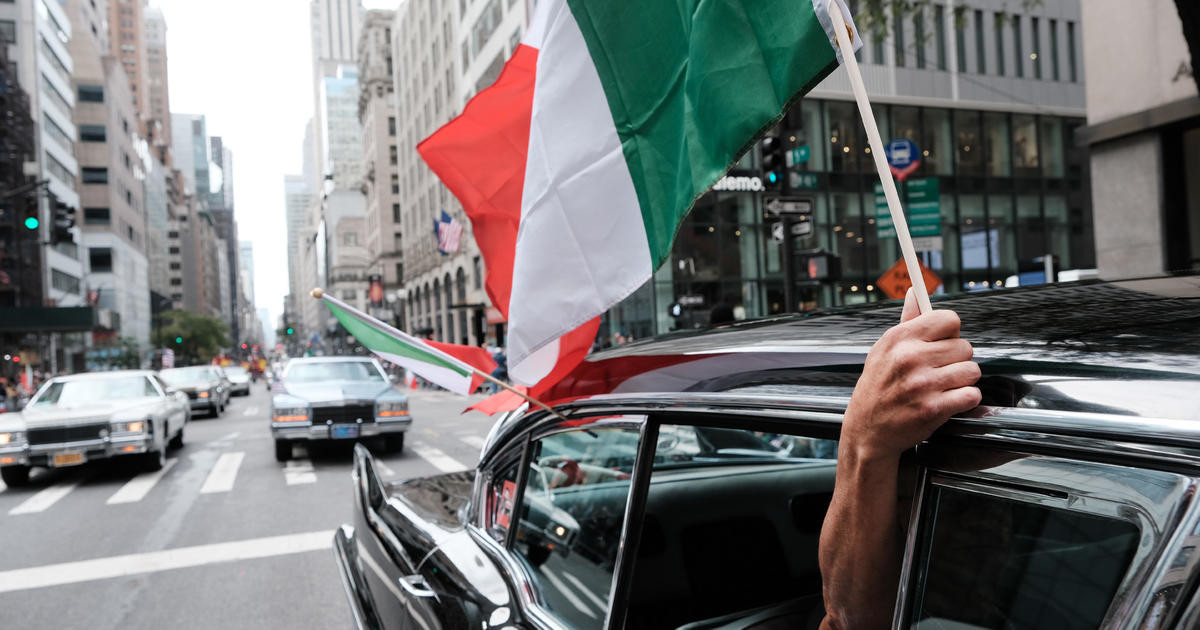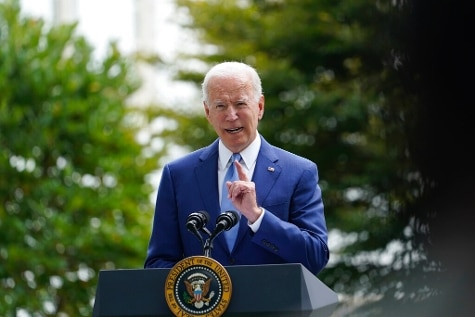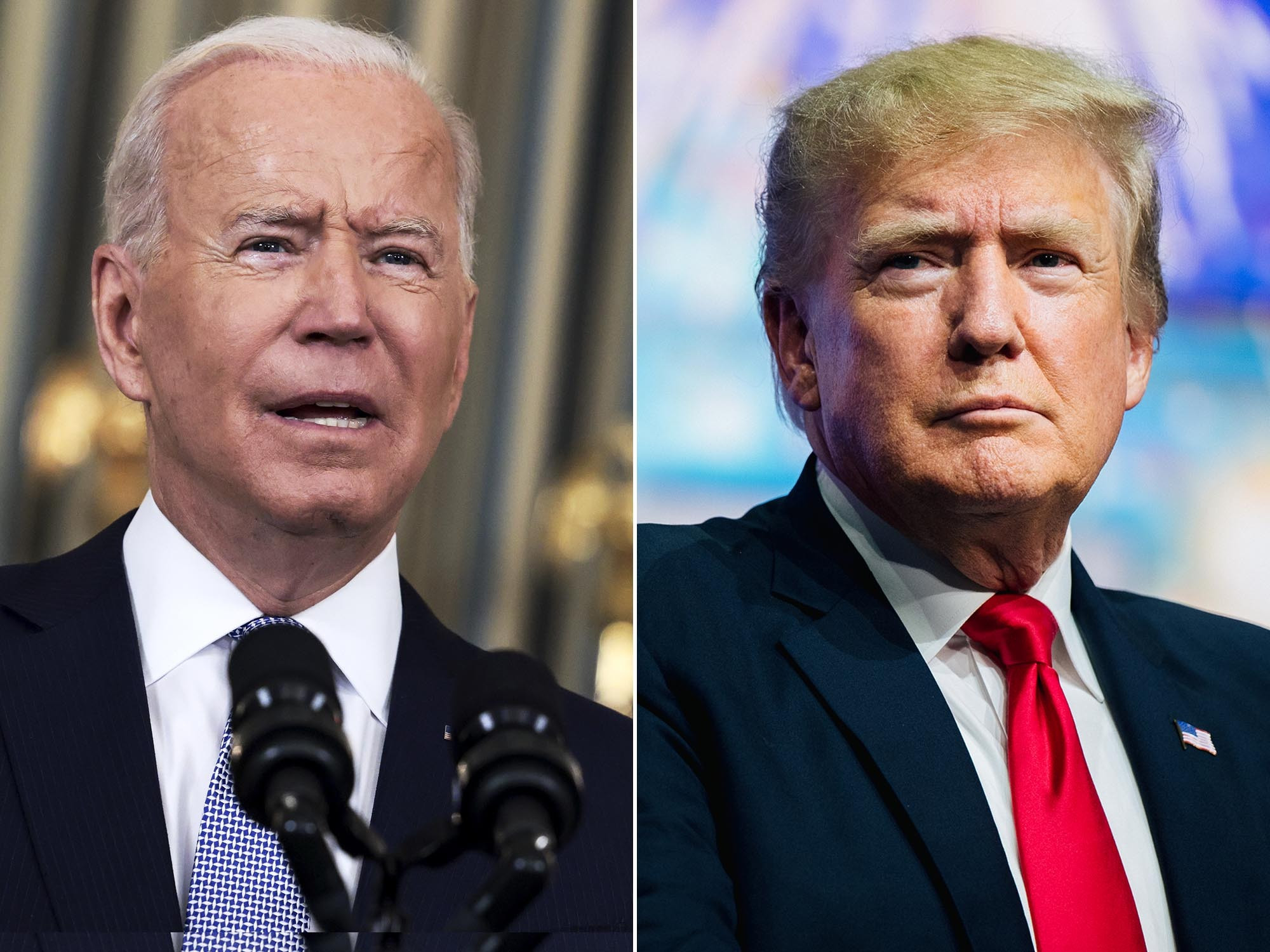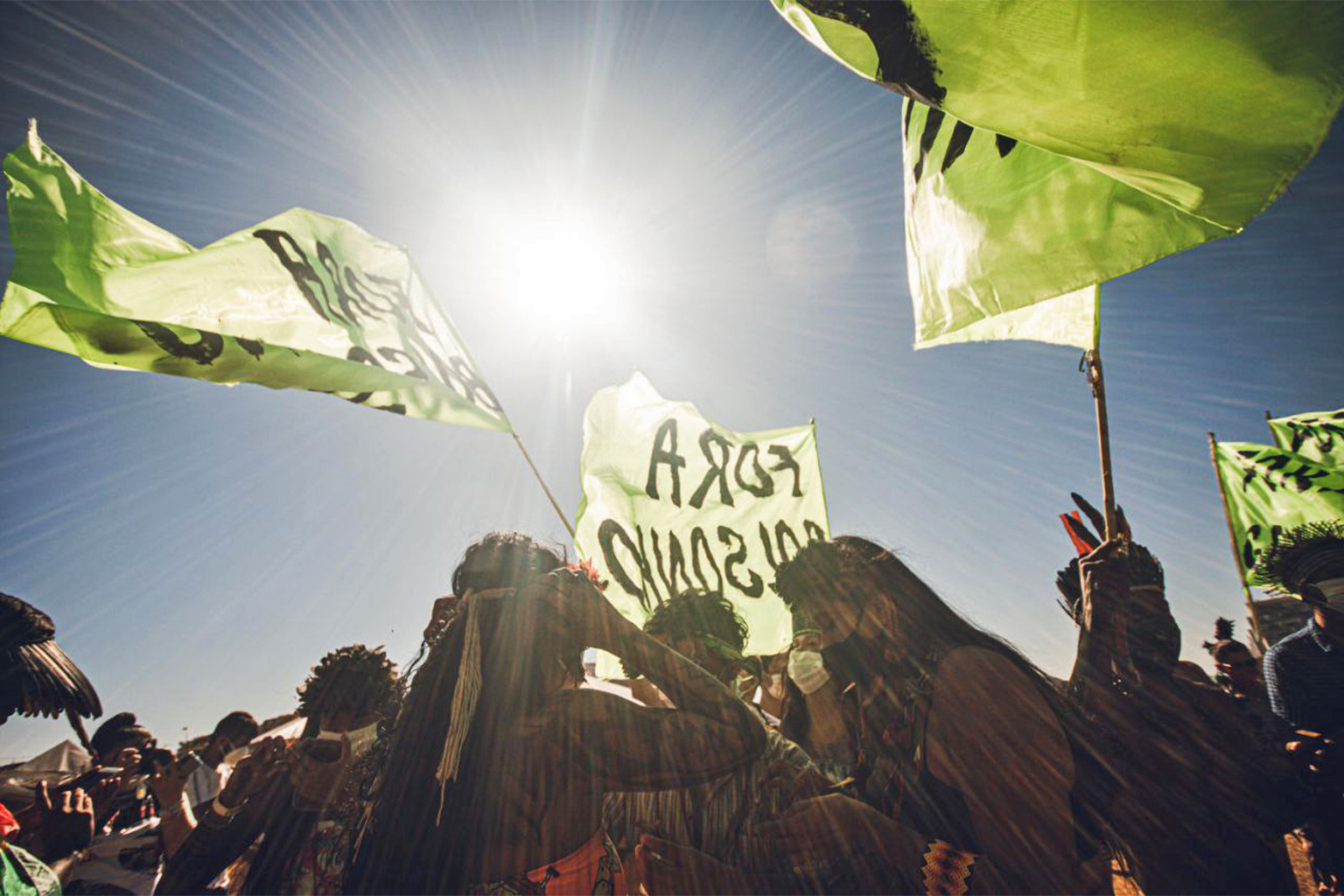The legacy of Christopher Columbus is making headlines in Ohio’s capital, and, on the federal level, with President Joe Biden’s release this past Friday of the 2024 Columbus Day Proclamation.
“In commemoration of Christopher Columbus’ historic voyage 532 years ago, the Congress, by joint resolution of April 30, 1934, and modified in 1968…as amended, has requested the President proclaim the second Monday of October of each year as ‘Columbus Day,’” Biden’s proclamation read.
“Now, therefore, I, Joseph R. Biden Jr., President of the United States of America, do hereby proclaim October 14, 2024, as Columbus Day,” Biden declared.
Biden’s proclamation took considerable time in acknowledging the cultural and historical legacies of the country’s Italians and Italian American families who migrated to this country after leaving everything behind to “sail across an ocean and chase the American Dream for the hope of a brighter future.”
“I believe we are the only Nation in the world with a heart and soul that draws from old and new,” Biden said. “For some Italian American families, the stories they share about their ancestors’ lives in this country stretch back generations. They are stories about immigrants who left everything behind to sail across an ocean and chase the American Dream for the hope of a brighter future. They are stories about ancestors who helped build this country and found America’s middle class — and their traditions and recipes still bring joy to their families today. They are stories of Italian American artists, laborers, lawmakers, and leaders who never gave up on the idea of America.”
The president categorized Columbus’s voyage as a source of pride for Italian Americans and noted their contributions to the nation as important.
“And for many Italian Americans, the story of Christopher Columbus’ voyage crossing the Atlantic from the Spanish port of Palos de la Frontera on behalf of Queen Isabella I and King Ferdinand II remains a source of pride,” Biden said. “But no matter if their families arrived here centuries ago or only recently, Italian Americans’ courage, strength, and character are woven into the rich tapestry of our country.”
Biden also briefly mentioned the “xenophobic attack” against Italian Americans that was the impetus for the Columbus Day holiday, which was first established by President Benjamin Harrison in 1892. And while Biden mentioned the incident that “took the lives of 11 Italian Americans the year before,” he didn’t provide any additional details, only saying that Italian Americans persisted “in the face of hate.”
“For many Italian Americans, the lives of their ancestors in this country were not always easy,” read the proclamation. “In addition to the challenges of starting life in a new land, they also faced discrimination. Columbus Day was founded by President Benjamin Harrison in 1892 in response to the horrific, xenophobic attack that took the lives of 11 Italian Americans the year before. In the face of hate, Italian Americans persisted — advancing our Nation and challenging us to live up to our highest values.”
Columbus Day and the Italian American Experience
The incident Biden referred to, the one that President Harrison responded to in 1892, was the lynching of 11 Italian Americans by an angry New Orleans mob on March 14, 1891. These murders were one of the largest mass lynchings in American history.
The irony? Few are aware of Italian Americans’ connection to Columbus — a connection that, when explored, often reshapes perspectives on the navigator’s place in American history.
In President Biden’s proclamation, a passage begins to paint the picture — in stark detail:
“For many Italian Americans, the lives of their ancestors in this country were not always easy. In addition to the challenges of starting life in a new land, they also faced discrimination. Columbus Day was founded by President Benjamin Harrison in 1892 in response to the horrific, xenophobic attack that took the lives of 11 Italian Americans the year before. In the face of hate, Italian Americans persisted — advancing our Nation and challenging us to live up to our highest values.”
Rarely in agreement, it’s worth noting that Biden and Republican presidential nominee Donald Trump both support Columbus Day.
The Origins of Columbus Day
The New Orleans lynchings were not an isolated incident. Over the next 30 years, 40 more Italian immigrants were strung up by angry mobs. In an effort to encourage more tolerance and acceptance of Italian immigrants, President Benjamin Harrison declared a national celebration of Columbus Day in 1892. From that day to this, Columbus, who was regarded as a national hero of Italian heritage, was embraced by Italian immigrants as a symbol that they would someday be accepted in America.
The Italian American Experience: Prejudice and Persecution
Between 1880 and 1920, some four million Italian immigrants left impoverished towns throughout southern Italy to seek a better life for their families in the U.S. Upon their arrival in America, they were subjected to violence and hostility unlike anything they had experienced in Italy.
Many of these immigrants arrived through the port of New Orleans to provide cheap labor needed in the sugar cane fields. They took the place of emancipated slaves. The sudden population shift upset some Americans who feared change and harbored bias. Unlike previous waves of immigrants from Northern and Western Europe, the customs, languages, and religions of Southern and Eastern Europeans were seen as too foreign by many white, Protestant Americans. Some believed these new immigrants would not blend into the nation. Discrimination led to intolerance in many communities, especially towards Italian immigrants from Sicily and Southern Italy. They were vilified in American media, newspaper articles, and cartoons, and were often described as “swarthy,” unintelligent, and criminal.
One tragic event got the attention of both the American and Italian governments. On October 16, 1890, New Orleans police chief David Hennessey was murdered. As he was dying, he allegedly described his attackers using a slur for Italians. In response, numerous Italian immigrants were arrested and 19 men, including one as young as 14, were indicted for the crime. However, in court, they were acquitted.
The Evolution of Columbus Day
In the past six months, judicial and legislative leaders also have sided with pro-Columbus advocates. In April, a Pennsylvania appeals court voted 7-0 to reinstate a lawsuit that was filed to preserve a 30-foot Columbus statue in Pittsburgh; in August, Massachusetts lawmakers retreated on a proposal to abolish Columbus Day statewide; and in September, the New Hampshire governor approved a law mandating Columbus Day recognition in all municipalities and public schools across the state. Why the sudden shift across governmental branches and within wide segments of public opinion? It all comes down to primary sources and a narrative that stands on its own merits.
Columbus Day and Indigenous Peoples' Day: A Complex Debate
Columbus Day is both a celebratory and divisive day for many American communities. The current debates around Columbus Day and Indigenous Peoples’ Day often pit one against the other. But The American origins of Columbus Day, a federal holiday established in 1937, show us that the modern celebration has less to do with Christopher Columbus and his voyages to the Caribbean and more to do with the mistreatment of Catholic Americans, which included Italian immigrants who experienced widespread discrimination and violence in the late 19th century.
Rethinking Columbus’ Legacy
Prior to the 500th anniversary of Columbus’s landing in 1992, Americans re-evaluated the legacy of Columbus in the wake of the Civil Rights Movement. Many descendants of those Italian immigrants especially considered the impact his voyages had on Indigenous communities in North and South America.
Native American activists helped the nation understand more about the full picture. They emphasized that Columbus’ voyages were the catalyst for the Columbian Exchange, the Trans-Atlantic slave trade, and the beginning of the near eradication of Indigenous peoples in the Americas. A re-examination of primary sources, including the Spanish language diaries of Columbus and his contemporary Bartolomé de las Casas, show a motivation for gold, human resources, and the spread of Christianity outside Europe.
Indigenous Peoples’ Day arose out of a desire in Native American communities to celebrate the history and culture of peoples indigenous to the Americas. In states with few Italian Americans and larger native populations, such as Colorado, Alaska, South Dakota, and Vermont, Columbus Day is not celebrated. Hawai’i celebrates “Discoverer’s Day,” but instead of honoring European explorers, they honor their Polynesian ancestors who also navigated the ocean. While Columbus Day is a federal holiday, states and cities can make decisions about what to (or not to) celebrate. For example, the City of Pittsburgh celebrates both Columbus Day and Indigenous Peoples’ Day.
Unlike earlier generations, today, we are reckoning with the reality that Columbus and his crew engaged in colonization, acts of violence, enslavement, and decimated the population of the Taíno people. Compared to the 18th and 19th centuries, his reputation as an American hero has certainly changed. Many Italian Americans now understand that a holiday in his name does not celebrate the positive contributions of Italian immigrants and vibrant culture of Americans of Italian ancestry.



















